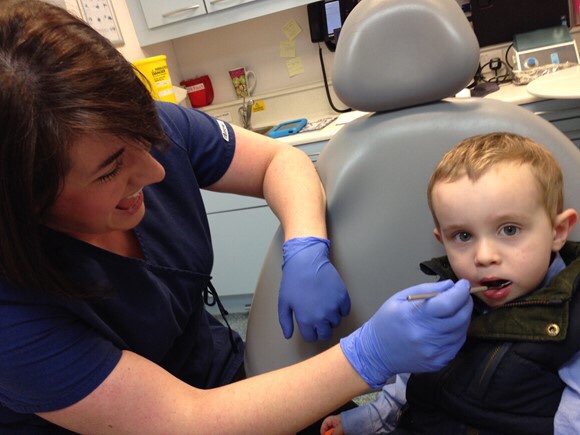Nearly one in six children in Brighton and Hove has decayed, missing or filled teeth by the time they are five years old.
Yet the figure – 16.2 per cent – is one of the best in the south east. It compares well with 20.3 per cent in East Sussex and 17.5 per cent in West Sussex.
Dental teams are increasingly supporting Public Health England’s Change4Life campaign to tackle the problem by helping families choose healthier snacks.
The campaign team is advising families to look for 100-calorie snacks, permitting two a day at most.
The advices comes after research showed that children were eating nearly three times the recommended amount of sugar, with half coming from snacks and sugary drinks.
Public Health England said: “Too much sugar not only leads to weight gain and obesity but also dental decay.
“To help fill in the gaps of people’s sugar-busting knowledge, Public Health England is working with dental teams from the region to promote the Change4Life public health campaign, particularly around reducing sugar.
“Public Health England h7nas developed the Top Tips for Teeth dental toolkit to support dental teams with their advice to parents who come into their surgeries about the best ways to prevent tooth decay in children.
The most important advice is
- reduce sugar
- brush twice a day with a fluoride toothpaste
- get regular dental checks from an early age
Jenny Oliver, consultant in dental health for Public Health England in Kent, Sussex and Surrey, said: “It is great to have this opportunity to raise awareness of the simple, achievable things every family can do to improve dental health in children.
“It is not just childhood obesity that too much sugar leads to – there is far too much decay in those far too young.
“It is very sad when teeth have to be removed in children, sometimes in hospital under a general anaesthetic. Sometimes adult teeth have to be removed which will be permanent loss.
“Being sugar smart – swapping out sugar for healthier food and drink choices – is a vital step in the fight against cavities.
“Another is to visit the dentist regularly and we recommend parents bring their children in from the moment their teeth start coming through – so at around six months.
“Regular visits after that will help dental teams to work with parents to keep their children’s teeth healthy.
“Brushing twice a day with a fluoride toothpaste, including just before bedtime, is really important. Your dentist will tell you what the right toothpaste and right amount is for your child.
“A lot of our tips may seem like common sense – but by brushing up on these messages we hope to get parents and kids thinking about how to improve their dental health.
“It is so important to make it a priority and introduce good tooth brushing and eating habits early – after which they will hopefully last a lifetime.”
Dentists’ top tips for parents
Be Sugar Smart
- Easy less sugar, less often – preferably only at mealtimes
- Avoid sugary food and drink before bedtime
- Swap sugary drinks for sugar-free drinks – water or milk are best
- 4 to 6-year-olds should have no more than 19g of sugar a day (5 sugar cubes)
- 7 to 10-year-olds should have no more than 24g of sugar a day (6 sugar cubes)
- 11 year olds and over should have no more than 30g of sugar a day (7 sugar cubes)
- Don’t replace sugary snacks with salty ones. Recommend snacks such as plain homemade popcorn or rice cakes, fresh fruit and vegetables
See the Dentist
- Take kids to dentist as soon as first tooth starts to comes through – and go back as your dentist recommends.
- Remember that NHS dental treatment is free for everyone under 18, and for mothers from the time they become pregnant to when their baby is a year old.
Be Brush Aware
- Brush twice a day. Brush with the recommended amount of fluoride as soon as the first tooth shows itself at around six months. The amount of toothpaste to use depends on age, your dentist will be able to advise.
- Twice is nice – brush twice a day, once before bed and another whenever suits your family routine.
- Spit don’t rinse – water washes fluoride away but fluoride makes teeth strong.
Public Health England added: “The dental toolkit aims to support dental teams to communicate good dental practice to parents in bitesize chunks.”








